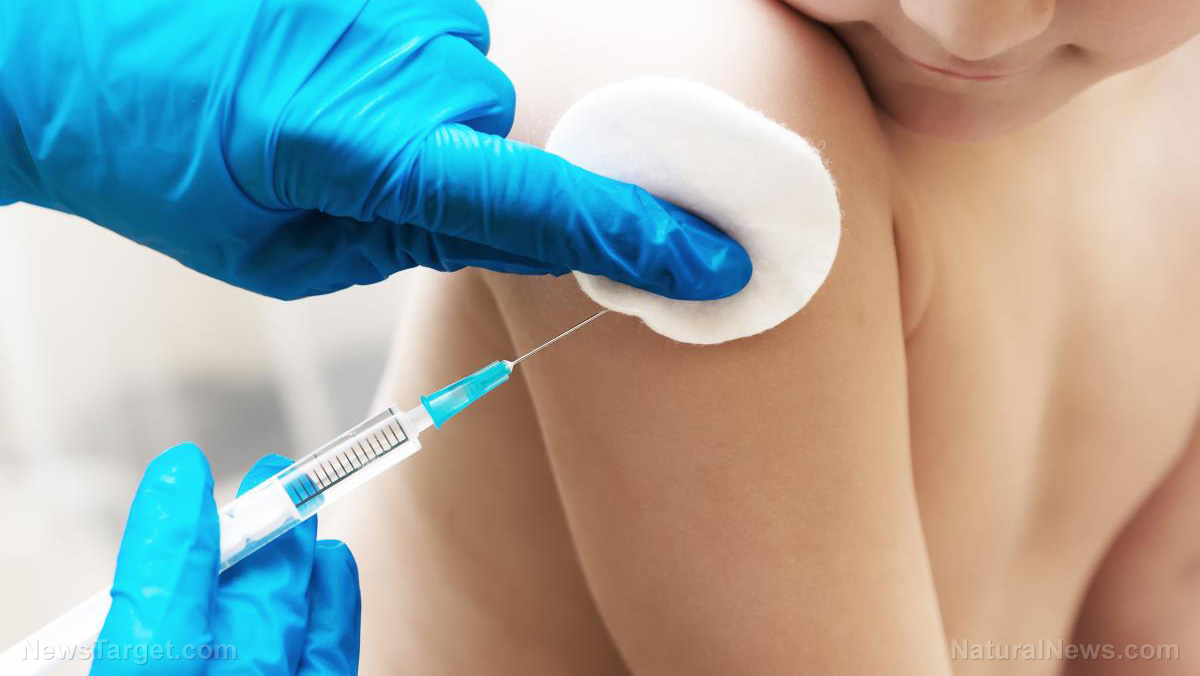Moves to delay second dose of Pfizer vaccine not supported by test data
01/13/2021 / By Franz Walker

BioNTech, the German biotech group that worked with Pfizer to develop the first Wuhan coronavirus (COVID-19) vaccine together to receive approval, warned that there was “no data” to support moves to delay the second dose of the vaccine.
The delays had initially been proposed by the U.K. government as a means to get the first dose to as many people as possible amid limited supplies of the vaccine. Germany has since considered following the U.K. in the face of growing concerns over a more infectious variant of the virus, which emerged in England.
According to a report by the Financial Times, Germany’s health ministry has asked the country’s vaccination commission “to review and evaluate the available data and studies and to issue a recommendation on this issue.”
But the European Medicines Agency (EMA) said that the BioNTech/Pfizer vaccine – the only COVID-19 vaccine currently approved for use in the EU – had been authorized as two injections, given at least 21 days apart and that changing this would require separate authorization.
“Any change to this would require a variation to the marketing authorization as well as more clinical data to support such a change, otherwise it would be considered as ‘off label use,'” the EMA said.
BioNTech says no data on delay longer than three weeks
BioNTech said that its trials, which were run with U.S. pharmaceutical giant Pfizer, were largely based on the two does being administered roughly three weeks apart and that this remained the recommended advice.

“[The] safety and efficacy of the vaccine has not been evaluated on different dosing schedules as the majority of trial participants received the second dose within the window specified in the study design,” a company spokesperson said to the Financial Times.
Pfizer, BioNTech’s partner in the development of the vaccine, echoed the latter’s sentiments. The pharmaceutical company questioned the U.K.’s government’s decision last week by restating the recommended 21-day period between doses.
Data from the two companies’ phase-3 trials, which involved more than 43,000 volunteers in six countries, showed that participants gained partial protection as early as 12 days after the first dose of the vaccine. The study, however, did not show how long that protection lasted – participants received their second shot nine days later.
A review, published last month in the New England Journal of Medicine, found that between the first and second doses, the group that received the vaccine had fewer than half the number of infections than that which received a placebo.
According to the review, these results suggest an efficacy rate of 52 percent after the first dose. This number is higher than the protection level required by U.S. regulators for a COVID-19 vaccine.
The U.K.’s four chief medical officers have defended the decision to extend the recommended gap between the first and second dose from 21 days to up to three months.
“We have to ensure that we maximize the number of eligible people who receive the vaccine,” the officials said in a joint statement last week.
The rapid spread of a new mutant strain of the coronavirus in the U.K. has also encouraged some scientists in other countries to back the U.K.’s approach.
Talking to the DPA news agency last week, German vaccine committee head Thomas Mertens stated that extending the gap between doses was “definitely worth considering.” At the same time, the country is also exploring whether it can extract six doses from each vial of the BioNTech/Pfizer vaccine, rather than the five recommended by the manufacturers.
EU faces supply gaps of BioNTech/Pfizer vaccine
On top of addressing the new mutant coronavirus strain, the moves to get as many people with the first shot of the BioNTech/Pfizer vaccine come in response to possible gaps in the vaccine’s supply in Europe.
“At the moment it doesn’t look good – a hole is appearing because there’s a lack of other approved vaccines and we have to fill the gap with our own vaccine,” BioNTech CEO Ugur Sahin told German news weekly Spiegel.
The U.S. ordered 600 million doses of the BioNTech/Pfizer vaccine in July, but the EU waited until November to place an order only half that size.
“At some point it became clear that it would not be possible to deliver so quickly,” BioNTech Chief Medical Officer Oezlem Tuereci told Spiegel. “By then it was already too late to place follow-on orders.”
BioNTech has since confirmed that it’s in talks with the European Commission in Brussels on boosting output. The company also hopes to launch a new production line in Marburg, Germany ahead of schedule in February. Sahin claims that this facility can produce 250 million doses in the first half of 2021. (Related: Vaccine data from Pfizer and BioNTech possibly stolen in cyberattack against EU medicine regulation agency.)
In addition, the company is also talking with contract manufacturers to produce more doses of the vaccine.
German health minister Jens Spahn has stated that German authorities would do everything possible to enable a swift start in Marburg.
Spahn has also urged the EMA to quickly approve the Oxford University-AstraZeneca shot cleared by the U.K., the EU timeline for which remains uncertain. Meanwhile, another vaccine from Moderna is expected to be cleared by the EMA on Jan. 6.
Follow Pandemic.news for more on the fight against COVID-19.
Sources include:
Tagged Under: Big Pharma, BioNTech, coronavirus, covid-19, Europe, Germany, immunization, pandemic, Pfizer, Plague, United Kingdom, vaccine




















